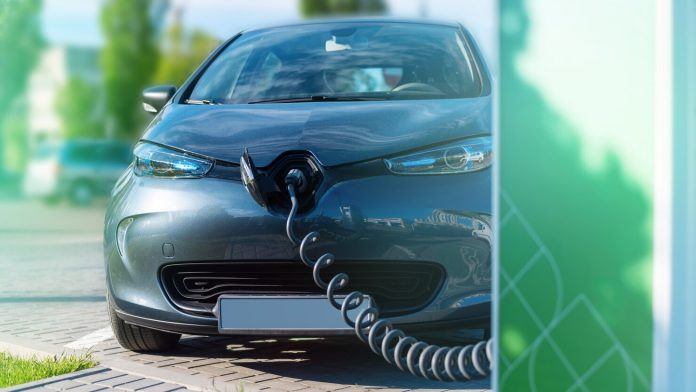Electric cars are becoming increasingly popular, offering eco-friendly transportation and innovative technology. However, insuring an electric car differs significantly from insuring traditional vehicles.
Let’s explore the unique aspects of a car insurance policy for electric vehicles and how they differ from regular car insurance.
6 Differences Between Electric Car Insurance and Regular Car Insurance
Electric cars need specialised car insurance coverage due to their unique components and higher upfront costs. Here’s a breakdown of key differences:
| Feature | Electric Car Insurance | Regular Car Insurance |
| Vehicle Cost | Due to advanced battery technology, electric vehicles often cost more, leading to slightly higher insurance premiums. | Conventional vehicles generally have a lower cost, potentially resulting in reduced premiums. |
| Battery Protection | Insurance policies frequently include specific battery coverage, a critical and valuable EV component. | Conventional insurance usually covers the overall vehicle value without dedicated battery coverage. |
| Repair Expenses | Repairs for EVs can be more expensive, especially for electric motors and advanced electronics, impacting premiums. | Conventional vehicles have lower repair costs due to readily available parts and standardised processes. |
| Specialised Coverage | Policies may include unique features like coverage for charging equipment or electric powertrain components. | Insurance for conventional vehicles typically focuses on standard systems without electric-specific considerations. |
| Range Anxiety Assistance | Some policies offer coverage or assistance for range-related incidents, like running out of charge far from stations. | This type of coverage is unnecessary for conventional vehicles and is not included. |
| Government Impact | In areas with subsidies or incentives for EVs, policies may reflect these benefits in coverage and premiums. | Conventional vehicle insurance is usually unaffected by government incentives or subsidies. |
Factors Impacting Electric Car Insurance Costs
Various factors have an impact on the cost of electric car insurance. Understanding these factors can help preparing your budget effectively:
1. Vehicle Value
Electric vehicles often have a higher cost, directly impacting insurance premiums.
2. Repair Costs
Electric car repair requires specialised technicians and tools, contributing to higher claims.
3. Usage Patterns
Insurers may assess how frequently the car is used. Lower mileage can sometimes result in reduced premiums.
4. Safety Features
Advanced safety systems can reduce accident risks, which may lower your premium.
5. Battery Replacement Costs
Since batteries are expensive, insurers factor their replacement cost into the premium calculation.
| Factors | Impact on Insurance Costs |
| Vehicle Value | EVs are usually more expensive than regular cars, increasing premiums. |
| Battery Replacement | Battery costs are significant, leading to higher potential payouts. |
| Repair Network | Limited repair facilities for EVs can drive up claims costs. |
| Driving Range | Vehicles with longer ranges may have higher premiums. |
Key Insurance Coverage Options for Electric Cars
Insurance providers offer specific options for EVs, ensuring comprehensive protection:
1. Comprehensive Cover
Protects against theft, fire, vandalism, and natural disasters. It also includes liability for third-party injuries or property damage.
2. Battery Coverage
This is specific to electric cars and covers battery repair or replacement costs.
3. Third-party Liability
Covers legal liabilities if your vehicle causes injury or damage to others.
4. Own Damage Cover
Provides financial support for repairing damages to your vehicle due to accidents or mishaps.
5. Add-Ons for Electric Vehicles
- Zero Depreciation Cover: Ensures full claim settlement without accounting for depreciation.
- Roadside Assistance: Offers support in case of battery depletion or breakdown.
- Charging Equipment Cover: Protects against damage or theft of home charging equipment.
| Coverage Type | Regular Cars | Electric Cars |
| Comprehensive Cover | Standard | Includes battery protection |
| Third-Party Liability | Standard | Standard |
| Add-Ons | General options | EV-specific options |
Why is Electric Car Insurance Typically More Expensive?
Insuring electric cars can cost more than traditional vehicles due to several reasons:
1. High Vehicle Cost
Electric cars are comparatively more expensive than petrol or diesel, increasing the overall insured value.
2. Specialised Repairs
Repairs require trained professionals and specialised equipment, which raises the cost of claims.
3. Battery Expenses
The battery comprises a portion of the car’s value, leading to higher premiums.
4. Limited Insurer Options
With fewer insurers offering electric car insurance, competition is lower, keeping premiums higher.
Tips to Lower Your Electric Car Insurance Premium
Despite higher premiums, there are ways to save on car insurance. Follow these tips to reduce costs:
1. Install Safety Features
Advanced safety measures, such as anti-theft devices, can lower premiums.
2. Opt for Higher Voluntary Deductibles
A higher deductible can minimise your premium amount, although it increases out-of-pocket expenses during claims.
3. Choose Usage-based Insurance
If you drive less frequently, a usage-based plan might lower your costs.
4. Maintain a Clean Driving Record
Safe driving habits can help you earn discounts on your premium.
Electric cars are changing the future of transportation, and their insurance requirements are evolving accordingly. Understanding how car insurance for electric cars differs from regular policies can empower you to choose suitable coverage. With the right car insurance policy, you can enjoy the advantages of having an electric car without worrying about unforeseen financial challenges.





